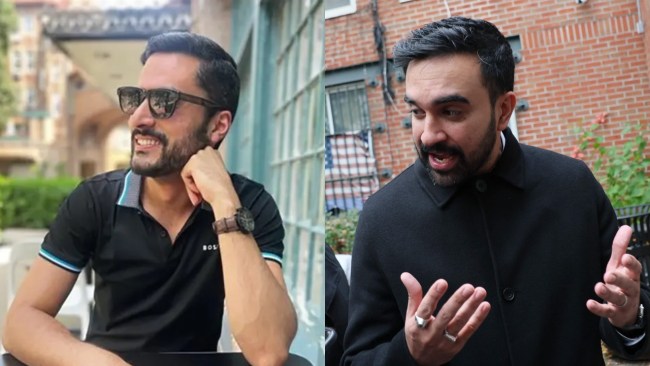by Rabbi Yair Hoffman for the Sefas Tamim Foundation
QUESTION: I am an administrator in a Yeshiva with the authority to make decisions as to when to remodel, when to repaint, which contractors to hire, and to negotiate prices. I also hired one of the contractors that I used in the Yeshiva to paint the attic floor in my home. When I asked him the price, he responded, “I am only charging you for materials and not labor costs.” I feel kind of shabby doing this, am I allowed to take his generous offer or is it a form of bribery that could possibly affect my judgement as the admin of the Yeshiva?
ANSWER: Wow! This is a remarkable question that involves three important sources:
- a Gemorah in Sanhedrin (27a and b)
- a ruling of the Rosh (Sanhedrin Zeh Borer Siman 17)
- and the words of Rabbi Yom Tov Heller in his Pilpulah Charifta.
THE GEMORAH
The Gemorah tells us of a man named bar Chama who allegedly killed a person. The Raish Galusa said to the Dayan – Rav Abba bar Ya’akov: Go investigate this case, and if he certainly killed him, let the government authorities put his eyes out (a fine that is extra-legal and not halachic – Rashi) . Subsequently two witnesses came and testified that he did kill him. Bar Chama then went and brought two other witnesses, who testified about one of the first witnesses that he stole.
Rav Abba bar Ya’akov said to bar Chama: Why did you bring these witnesses? What do you hold? Do you hold like Rabbi Meir in his dispute with Rabbi Yossi, that one who is guilty of theft is disqualified from testifying in capital cases? Rav Pappi who was present at the time then proved that we do rule like Rabbi Meir. Based on this conclusion, bar Chama was acquitted. Bar Ḥama then arose and kissed Rabbi Pappi on his feet and accepted upon himself to exempt him of his karga-tax for the rest of his life.
THE ROSH
The Rosh (Siman 17) asks, “How is this at all permitted? Isn’t this out and out post-facto bribery? (yh: See Ramah CM 34:18 that post-facto bribery is forbidden based on this Rosh). He answers that he didn’t give Rav Pappi any monetary compensation – rather he spoke to the king on his behalf to exempt him from a tax that he was technically exempt from paying anyway (a clergy exemption). Therefore, it is not considered post-facto bribery. Otherwise, it would be forbidden just like paying post-facto interest is forbidden.”
THE PILPULAH CHARIFTA
The Pilpula Charifta (letter Shin) on the Rosh writes: Come and see the great matter that our Master has taught us! That bribery is forbidden even in matters that are not a Din Torah, but rather are a technical fine like Rashi explains. And even still our Master (the Rosh) explains that he (Rav Pappi) took it upon himself to take care of the Karga tax in a manner that did not involve a bribe. I wrote this to teach that those who have been appointed to the tzibbur (serving the public) that even though their decisions and responsibilities are not Din Torahs and they were not appointed as such – they must be careful not to accept gifts for their decisions.
We now go to Rabbi Abraham Tzvi Hirsch Eisenstadt of Byelostok (1812-1868) the author of the Pischei Teshuvah on Shulchan Aruch. He cites (CM 9:1) the ruling of the Pilpulah Charifta authoritatively.
Based upon all of this, it is clear that even an administrator of a Yeshiva may not take freebies or perks if he is in charge of decision-making. My Rosh Yeshiva, Rav Henoch Leibowitz zatzal once remarked, “You must always ask yourself whether you would regret doing it if what you did would appear in the New York Times with its negative slant. If you would regret doing it – then don’t.”
To subscribe to the weekly Parsha sheet of the Sefas Tamim foundation please send an email with the word “Subscribe” to the author at [email protected]













3 Responses
What if he accepted the “bribe” and then gave the money he saved as a donation to his yeshiva? In other words, he’d be letting the contractor make a donation to his yeshiva, would that be acceptable? If it made it into the Times it could make him and the yeshiva both look good.
So if a contractor gives the contracting officer a discount for work done on a separate contract that is solely for the contracting officer’s personal benefit, do you have to ask if it is corrupt? This assumes that the contractor is not donating “labor” to the yeshiva as well (unlikely) and that the house in question is owned by the contracting office (and not a “parsonage” owned by the yeshiva. If this was for a government agency there would be not so much a concern how it would in the New York Times, as much as how you would explain this to your fellow inmates (after conviction for bribery/kickbacks, fraud and probably tax evasion).
An administrator is not someone who has been appointed to the tzibbur. He runs the yeshiva. More so, there is no fine here. I really don’t see how you can infer from the Pilpulay Chariftah to this case.